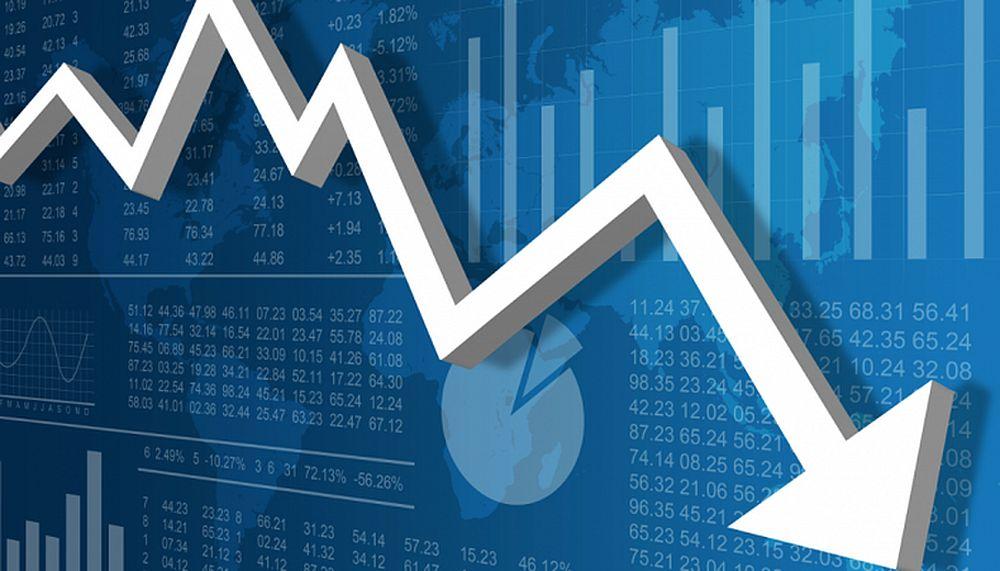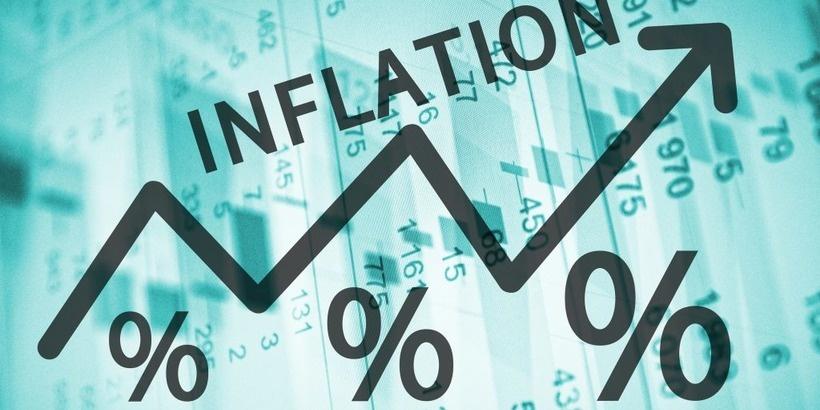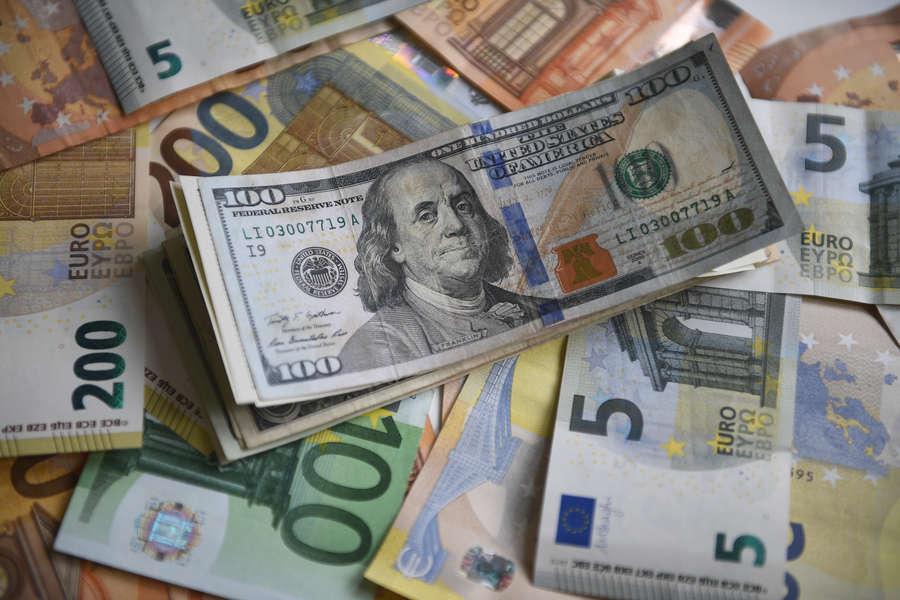Cost of war and sanctions: Will West be able to withstand it? Analysis by Serhey Bohdan
EU High Representative for Foreign Affairs and Security Josep Borrel said Thursday that Europeans should be prepared to "pay" for supporting Kyiv in its protracted war with Russia. The Russian media are persistently looking for signs that EU countries themselves will not withstand the consequences of supporting Ukraine and the anti-Russian sanctions. However, the Western media is doing a similar thing - predicting Russia's collapse due to sanctions - as long as military news does not point to an imminent failure of the Russian invasion. But could the EU soon falter, is the price of the "Ukrainian issue" so high for the West at the moment?
Tough, but not deadly
On a large scale, the effects of the war and sanctions on the West look limited at the moment. According to data released this week, German GDP showed zero growth in the second quarter, France increased by 0.5%, Italy by 1%, and the UK decreased by 0.1%. By comparison, according to a preliminary estimate by Rosstat, Russia's gross domestic product fell by 4% in the second quarter.

In other words, we should be cautious about forecasting the effects of the current crisis on Western countries. According to figures released on Friday, German exports in the first half of the year even increased compared to the same period of the previous year - up 13.4% to 763.9 billion euros. This is despite a drop in exports to Russia in the first six months of the year due to the war in Ukraine and sanctions against Russia, down 34.5% from the first half of 2021 to 8.3 billion euros. Imports to Germany also rose in the winter half to 729.6 billion euros, up 26.5% from the same period last year. Imports from Russia rose in value terms by 51.3% to 22.6 billion euros. But this was mainly due to higher energy prices because, in terms of volume, imports from Russia fell by 24%.
Of course, this does not mean that Europe has nothing to worry about. Amid a shrinking and uncertain Russian gas supply, the EU is looking for a variety of solutions to surviving the coming winter - hoping that the situation will improve next year with the introduction of liquefied natural gas (LNG) supplies through the completion of the relevant port infrastructure. But that's for later, as Hungarian Prime Minister Viktor Orban, known for his opposition to the EU and the Western European liberal establishment, said: "In the coming winter, some countries will not have gas, and some will have it, but it will be very expensive."
Last week, the Russian media emphasized that Hungary had even banned the export of firewood from the country, and Poland had begun experimenting with new grades of oil from the UAE. However, the gas situation is far from fatal, and even Germany - which depends on Russian energy more than any other major Western economy - has reserves. On Friday, the German Federal Network Agency said that the German natural gas storage facilities are at nearly 74.4% capacity and are still being filled. Germany can survive the winter without Russian gas, but to do so it needs to cut its consumption by about 25%. This measure is absolutely necessary even if it is possible to put LNG terminals into operation in winter and to start receiving gas delivered by tankers.
Higher inflation and falling production in Germany
All this will lead to a drop in production, but in the short term, it is unlikely to threaten German society with anything more dangerous. More people will work like in the days of the pandemic at home, stores will cut back on opening hours. The government is going to limit the temperature in public buildings, with the exception of hospitals and social institutions, to 19 degrees when the heating season begins, and to turn off the lights and advertising at night.
Ordinary citizens, of course, will feel the price increase. In September, the government of West Germany will pay a lump sum (300 euros each) to all the workers in the country in connection with the rise in energy prices, but this is a drop in the bucket. Gas prices are expected to double or triple, and all consumers will have to pay a "gas tax." The situation will be aggravated by high electricity prices. Now experts say that even families with two people working at a decent job could fall below the poverty line because even they would have to pay half of their income for utilities.

In fact, the directive temporary reduction in fuel prices and the introduction of a nine-euro ticket for public transport across Germany for the summer allowed the German government to push nominal inflation down for two straight months, from 7.9% in May (the highest rate since 1973-74) to 7.6% in June. This was achieved by depleting the government's financial resources, the consequences of which will have an effect in the foreseeable future.
Even the government admits that goods and services have risen by an average of 7.5% since 2021. Food products cost 14.8% more. The war immediately led to the disappearance from the shelves of sunflower oil and flour, probably produced with Ukrainian raw materials, and then to the appearance of many times more expensive products from other producers. The most popular food products rose sharply in price: edible fats and oils (+44.2%), dairy products and eggs (+24.2%), and meat and meat products (+18.3%).
The situation will worsen considerably closer to the end of the year, when, according to Frankfurter Allgemeine Zeitung, inflation figures will reach double digits. By then, the directive discounts on fuel and the "nine-euro ticket" will have been abolished, plus a gas fee will have been levied since October - to help gas importers pay for the costs involved. As a result, for an average household with an annual consumption of 20,000 kilowatt-hours, the additional costs will amount to up to a thousand euros per year.
The ambiguous situation in Poland and Great Britain
The situation in Poland is noticeably worse. But it is worth remembering the structural economic weakness of this country compared to Germany and its proximity to the warring Ukraine, which makes the consequences of the war affect Poland much more than any other EU country. In addition, Warsaw has recently purchased a gigantic amount of weapons worth many billions of dollars. If we take into account all these nuances, the economic situation does not look so catastrophic.
In Poland, the prices of goods and services rose about twice as much as in Germany. They were 15.6% higher in July than in the same month last year, the country's Central Statistics Office said Friday. Inflation hit a quarter-century high.
In particular, food prices rose 15.9% and transportation rose 27.7%. The most essential foodstuffs especially went up in price: flour - by 38.9%, bakery products - 29.1%, beef - 32.8%, poultry - 28.4%. The rent increased by 15.3%, and gas prices - by 44.9%. Diesel fuel prices rose by 40.3%, gasoline by 34.5%, and liquefied gas by 41%. As for short-term trends, over the past month, sugar (+7%) and vegetable fats (+4%) have gone up most of all - it is the effect of the disappearance of Ukrainian suppliers from the market. As for poultry, fruit, and vegetables, they have slightly gone down in price.
The difficult, but also not catastrophic situation was in another European country, which is actively involved in the confrontation with Russia - we are talking about the UK. The statistical data published last week by the British authorities show that the British economy has been doing quite well despite the global crisis phenomena and the value of the GDP has not changed much. The British currency itself has fallen much less against the dollar than the euro, only to about $1.21 per pound (1.27 in 2018). Nevertheless, the Bank of England expects Britain to be in a recession by the end of the year, which will not end until 2024 at the earliest.
Again, the macro-level figures hide a sometimes very unpleasant reality at the level of the ordinary citizen of the country. In fact, last month, consumer prices jumped 9.4 % in Britain. This is the highest inflation in forty years. Even the not-so-pessimistic outlook of the English Bank expects inflation to exceed 13% in the last quarter of the year as a result of further turmoil and above all rising energy prices.
In an attempt to combat inflation, which would be followed by popular outrage, the "English Bank" from last year gradually increased the base refinancing rate, but it was not enough and on August 4 it took a radical step by raising it immediately by half a percent - to 1.75%. Such high rates have not been reached for more than a quarter of a century. And it is despite the fact that usually in a recession it is reduced, in order to stimulate economic activity.
In other words, Britain, too, is facing the worst combination of economic stagnation and stagflation (stagnation coupled with inflation).

This situation has been exacerbated by war and sanctions, but not caused by them. Inflation has accelerated around the world because of the pandemic. That is why central banks in all of the world's leading economies are raising benchmark rates to fight inflation. We have already written about how the European Central Bank unexpectedly raised interest rates by half a percent at the end of July for the first time in eleven years. The US Federal Reserve raised interest rates by 0.75 percentage points in June and July, and the benchmark interest rate is already in a range of 2.25-2.5%.
British authorities believe that energy prices and disruptions in the global supply chain have played a major role in the current difficult situation. Indeed, gas prices have risen seven times compared to the previous year. The head of the Bank of England, Andrew Bailey, pointed out that "the shock caused by Russia's policy is the most important factor" in the current situation, and his bank's new forecasts involve more uncertainty than before because of the global political crises. As a result, the British central bank even announced that from September it would begin to sell off the securities that it had bought in better times, and would release ten billion pounds of securities into the market every quarter.
Geopolitical revolution within the Western bloc
The consequences of the sanctions against Russia do not lead to hesitation in the West regarding support for Ukraine, but rather to a reshuffling of forces within the EU, NATO, and all Western structures, but of a very different kind. As a result of the increasing weakening of Germany, which for decades grew through interaction with Russia as a continuation of cooperation with the USSR during the Cold War, the role of Poland is growing. The implications of this are evident in the conflict between Warsaw and EU structures.
It has escalated in recent weeks after the European Union again demanded that Polish legislation be brought in line with EU norms and froze the €35 billion promised for Poland's post-pandemic recovery. Representatives of Warsaw's ruling party flatly refused to listen to Brussels, and its secretary general threatened to block the work of the European Commission and put together a coalition to oust the German Ursula von der Leyen as head of the European Commission. Without thinking twice, Polish Prime Minister Mateusz Morawiecki published an August 10 column in Die Welt, a German newspaper known for its radical Euro-Atlanticism - simply put, its hard pro-American line. Morawiecki openly attacked the European Union, Germany, and France. The article called on Europe to "put imperialist Russia in its place," but reminded that in the fight against external Russian imperialism it is necessary to defeat "imperialism within the European Union," indicating that "political practice shows that the position of Germany and France means more than all other (EU) countries," and therefore the EU needs "deep reform that will return the common good and equality to the forefront of the principles of union." And this was not a voice crying in the wilderness, because Poland, albeit with reservations, can rely on a number of Eastern European countries within the EU, but most importantly, it has been increasingly successful in convincing the US of its suitability as a key American ally.
Parallel to the conflict between Warsaw and Brussels, several other crises are erupting within the EU. These include the ongoing political crisis in Italy and the first signs of the impending defection of the Social Democrats in Germany. All of them have an often-overlooked political, economic and geopolitical basis - the radical intensification of the EU's orientation to the United States and the marginalization of supporters of alternative courses (EU autonomy, cooperation with Russia). EU countries are now buying everything they can (from energy to arms) even at triple-dollar prices from the United States and its allies, and the "old elites" who had different views are weakening, in part, because their supporting businesses, which even during the Cold War worked with the USSR/Russia, have come under attack. All of this is the result of the Putin-Lavrov policy.
Will they have to fall together?
To summarize, it should be recognized that at the moment both the EU-NATO and Russia have enough resources to continue the confrontation. The West is not staggering economically, and its crises are rather related to the strengthening of radically pro-American elites. The Ukrainian resistance continues, and in fact, Western arms are not decisive for it. The Russian army, too, has once again proved to be not the caricature that some liberal media have long drawn of it. All sides are paying a high price for this, but they keep raising the stakes - Russia is not shy about openly capturing pieces of the brotherly country, and the West does not hesitate to turn Ukraine into a field for a preferably as protracted and bloody battle with Russia as possible, regardless of the cost to Ukraine.
It is extremely likely that the war will continue for more than a year, with gradual solidification of the fronts, and increasingly open involvement of NATO countries (in fact, it is already in place). They will be at war for a long time, and the political cataclysms that follow the war will not remain localized in one country either. Just as it has already happened in European history - Europe and Russia have fallen together more than once. In case anyone has forgotten, when after WWI the Romanov Empire fell, it was followed by the collapse of the seemingly victorious Germany, Austria, and the Ottoman Empire, and France lay in ruins and only the US had a nice "roaring twenties". Was it a different era? Well, the parties were fighting for beautiful ideas: for the rights of the "little country" (Serbia) against barbarism (German/Russian) and for "civilization."








